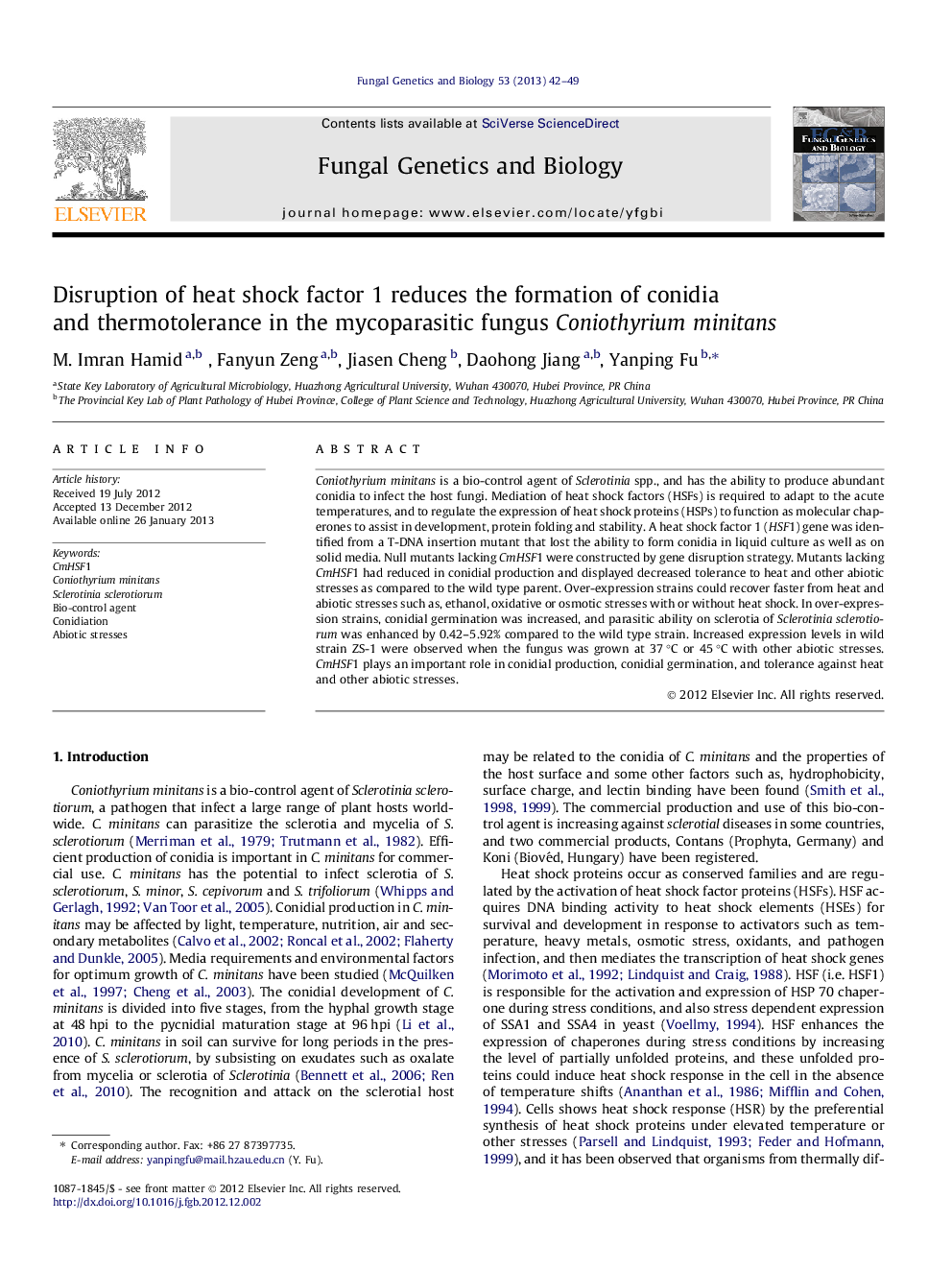| کد مقاله | کد نشریه | سال انتشار | مقاله انگلیسی | نسخه تمام متن |
|---|---|---|---|---|
| 2180866 | 1550037 | 2013 | 8 صفحه PDF | دانلود رایگان |

Coniothyrium minitans is a bio-control agent of Sclerotinia spp., and has the ability to produce abundant conidia to infect the host fungi. Mediation of heat shock factors (HSFs) is required to adapt to the acute temperatures, and to regulate the expression of heat shock proteins (HSPs) to function as molecular chaperones to assist in development, protein folding and stability. A heat shock factor 1 (HSF1) gene was identified from a T-DNA insertion mutant that lost the ability to form conidia in liquid culture as well as on solid media. Null mutants lacking CmHSF1 were constructed by gene disruption strategy. Mutants lacking CmHSF1 had reduced in conidial production and displayed decreased tolerance to heat and other abiotic stresses as compared to the wild type parent. Over-expression strains could recover faster from heat and abiotic stresses such as, ethanol, oxidative or osmotic stresses with or without heat shock. In over-expression strains, conidial germination was increased, and parasitic ability on sclerotia of Sclerotinia sclerotiorum was enhanced by 0.42–5.92% compared to the wild type strain. Increased expression levels in wild strain ZS-1 were observed when the fungus was grown at 37 °C or 45 °C with other abiotic stresses. CmHSF1 plays an important role in conidial production, conidial germination, and tolerance against heat and other abiotic stresses.
► Coniothyrium minitans is a potential bio-control agent of Sclerotinia diseases.
► CmHsf1 plays role in conidia production and tolerance to abiotic stresses.
► The mutants lacking CmHsf1 reduced the conidial production.
► Over-expression strains could recover faster from heat and abiotic stresses.
► Conidia germination was enhanced in over-expression strains.
Journal: Fungal Genetics and Biology - Volume 53, April 2013, Pages 42–49